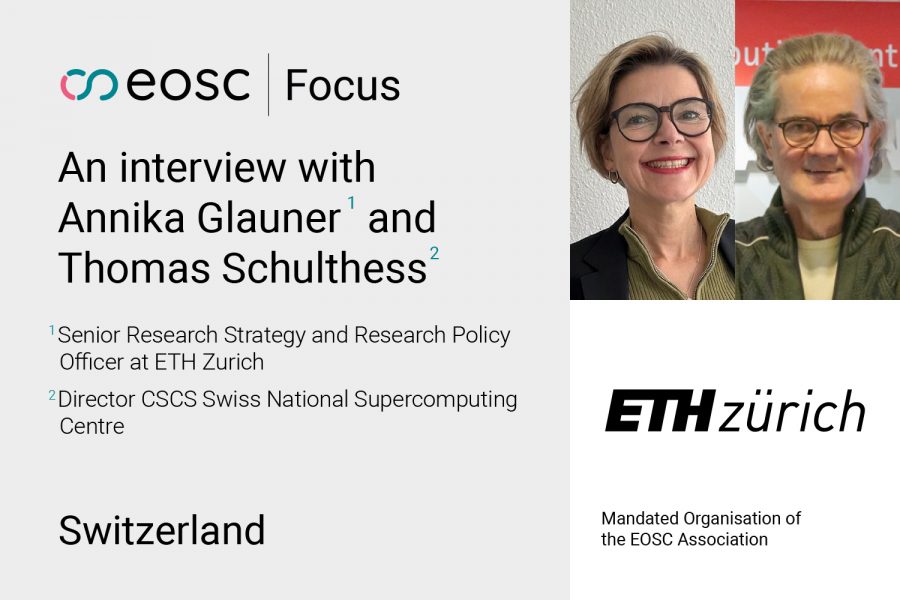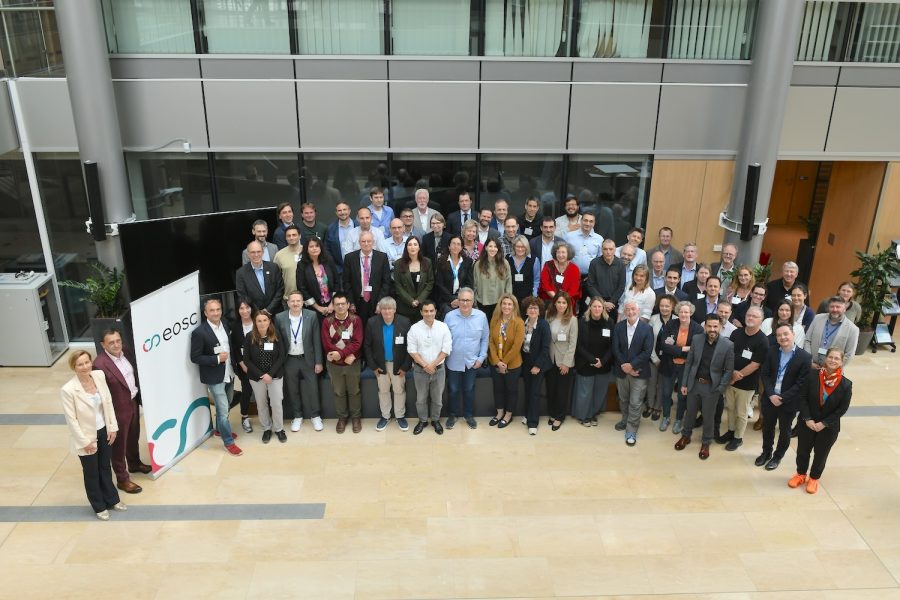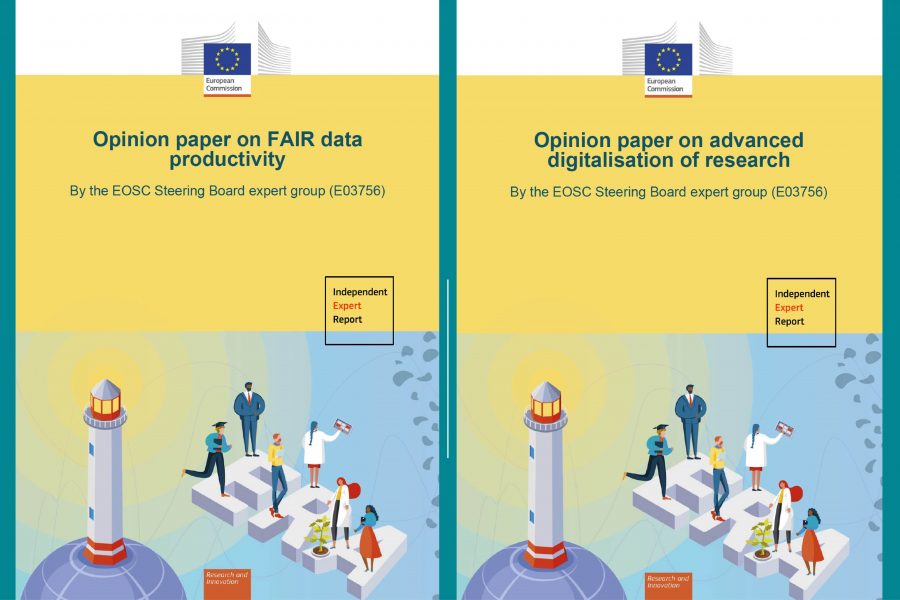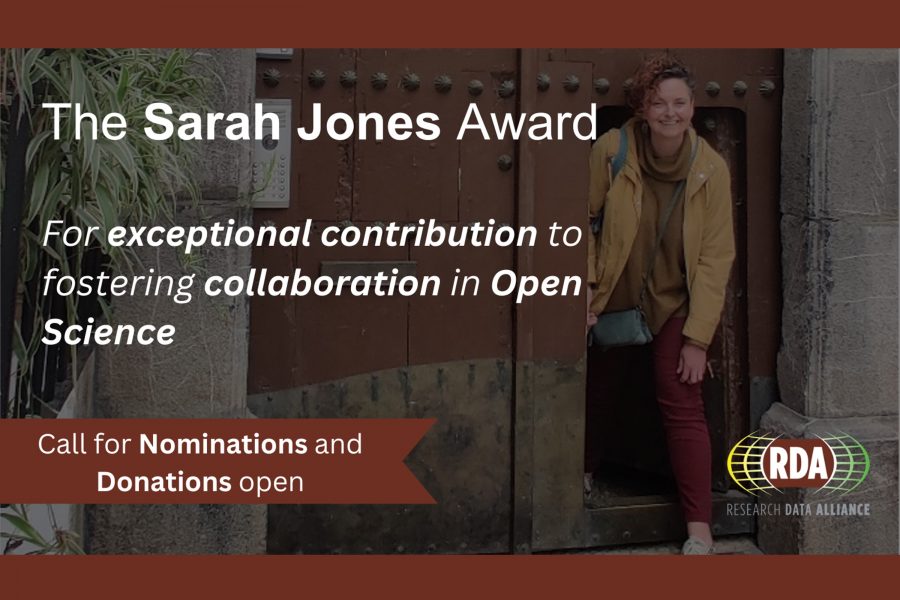MADRID — The fully hybrid EOSC Symposium 2023 took place over three days last week, bringing more than 500 in-person and online participants together for discussions, presentations and interactive sessions around the latest developments of the European Open Science Cloud.
Taking EOSC into the future
The EOSC Symposium 2023 was co-organised by the EOSC Future project, the European Commission, the EOSC Association and the EOSC Steering Board. Since last year’s event, it is clear that EOSC has reached a critical point in terms of the technology, community engagement and alignment at national and EU levels. Attendees from different domains, sectors and countries had a platform to present the latest technical milestones, community engagement, and plans for the EOSC Federation post-2027.
The keynote speakers, Research Professor Joaquín Tintoré of the Spanish National Research Council (CSIC) and Emanuela Girardi, founder and president of Pop AI, gave the participants a dynamic insight into the urgent use cases for EOSC across marine and climate infrastructures and the rapid development of artificial intelligence applications, respectively.
Representatives of the European Commission (DG RTD and DG CNECT) and of the Spanish Presidency of the Council of the European Union endorsed the future engagement, continuity and sustainability of EOSC.
For more on #EOSCsymposium23:
+ Session descriptions and presentations
+ Event photo album
+ Video recordings will be made available on the EOSC Symposium 2023 website soon
Standout moments & conclusions from the EOSC Symposium 2023
- EOSC is evolving according to a bottom-up approach (and the European Commission’s support is integral to ensuring this continued evolution)
- 2024 will be ‘the year of the design and initial deployment of the EOSC Federation’ (it will also be the year where initial decisions will be taken on EOSC governance post 2027)
- The EOSC EU node is not a master node, but a reference node
- A minimum set of requirements will have to be defined to enable an inclusive EOSC Federation
- The EOSC Federation will include multiple nodes, each country and thematic community will discuss the best set-up
- It was agreed that the European Commission’s (and Member States’) continued support is crucial (and that EOSC should remain a longer-term priority at national and EU levels)
- National contributions to EOSC will be made publicly available on the EOSC Observatory
- Collective procurement is not only cost-effective, in Europe, it can help boost the uptake of commercial cloud services among researchers
- EOSC does not operate in isolation: initiatives like data spaces, Destination Earth and EDICs will offer potential opportunities for synergies and joint developments with EOSC
- The future of EOSC cannot exist (or thrive) without engaging Open Science ecosystems beyond Europe
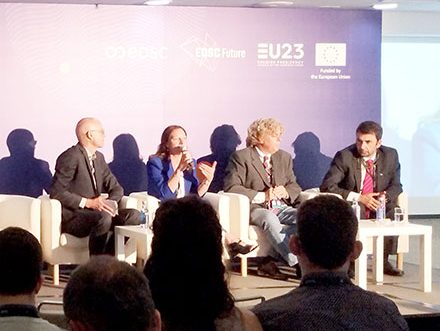
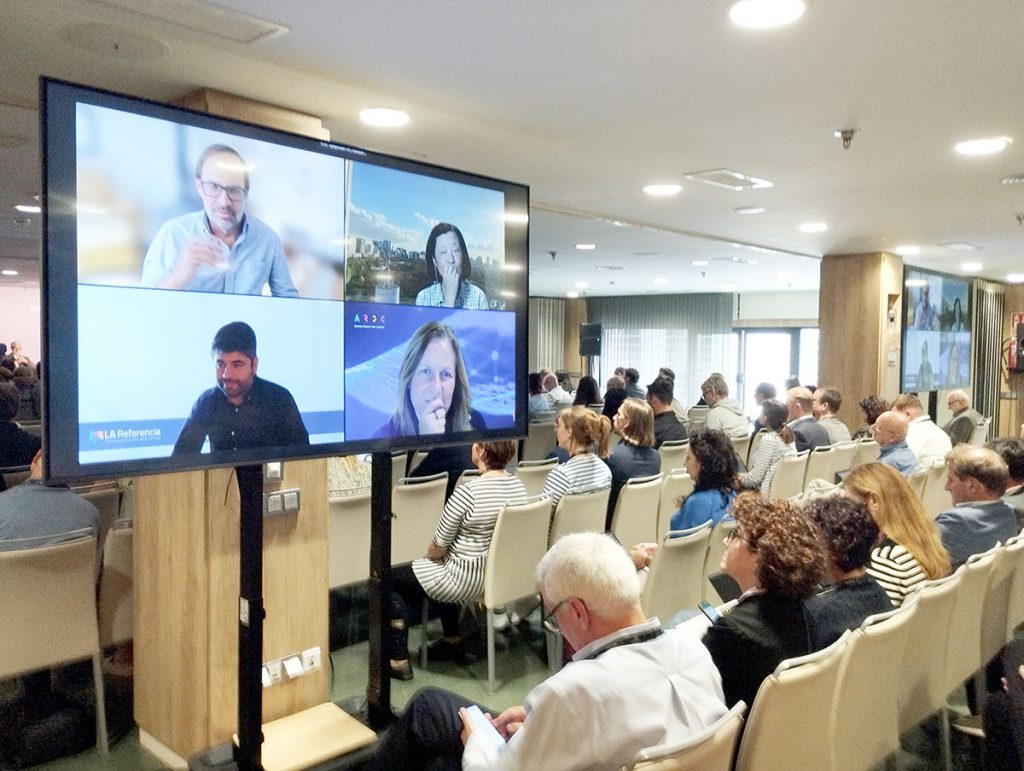
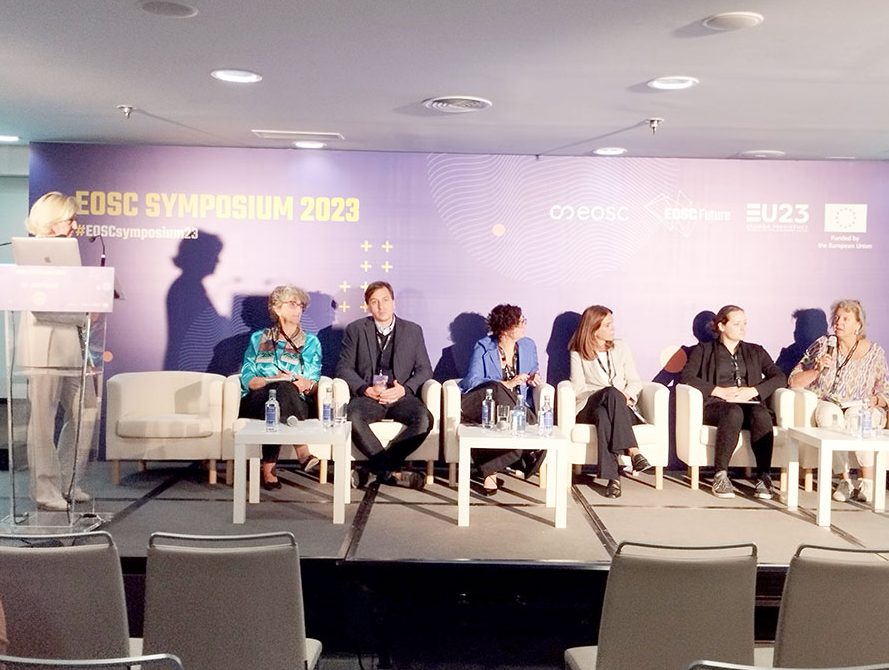
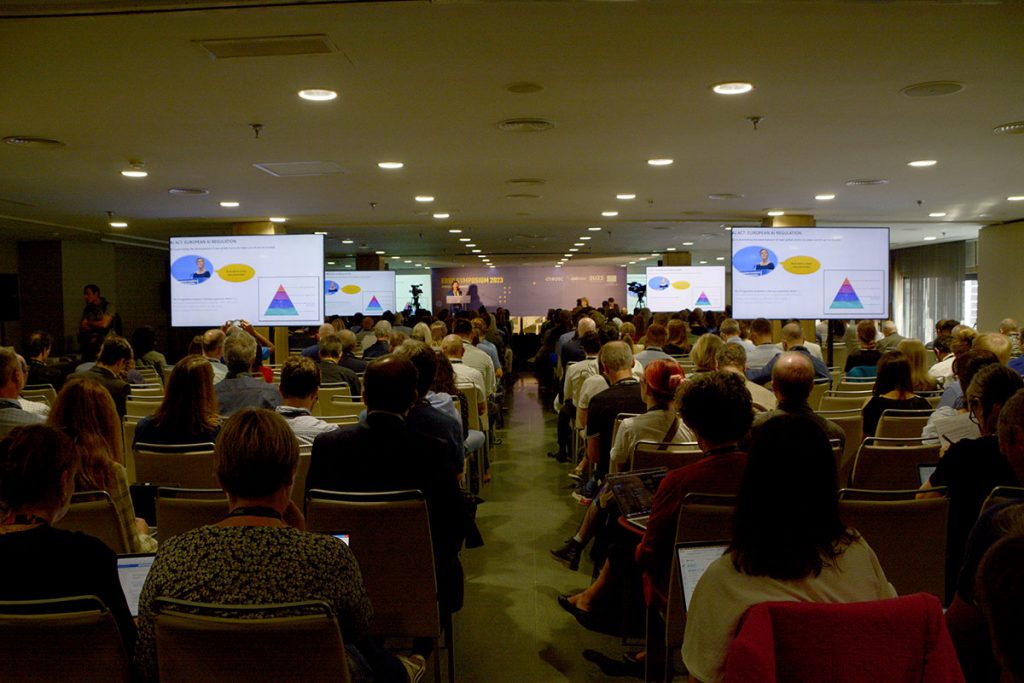
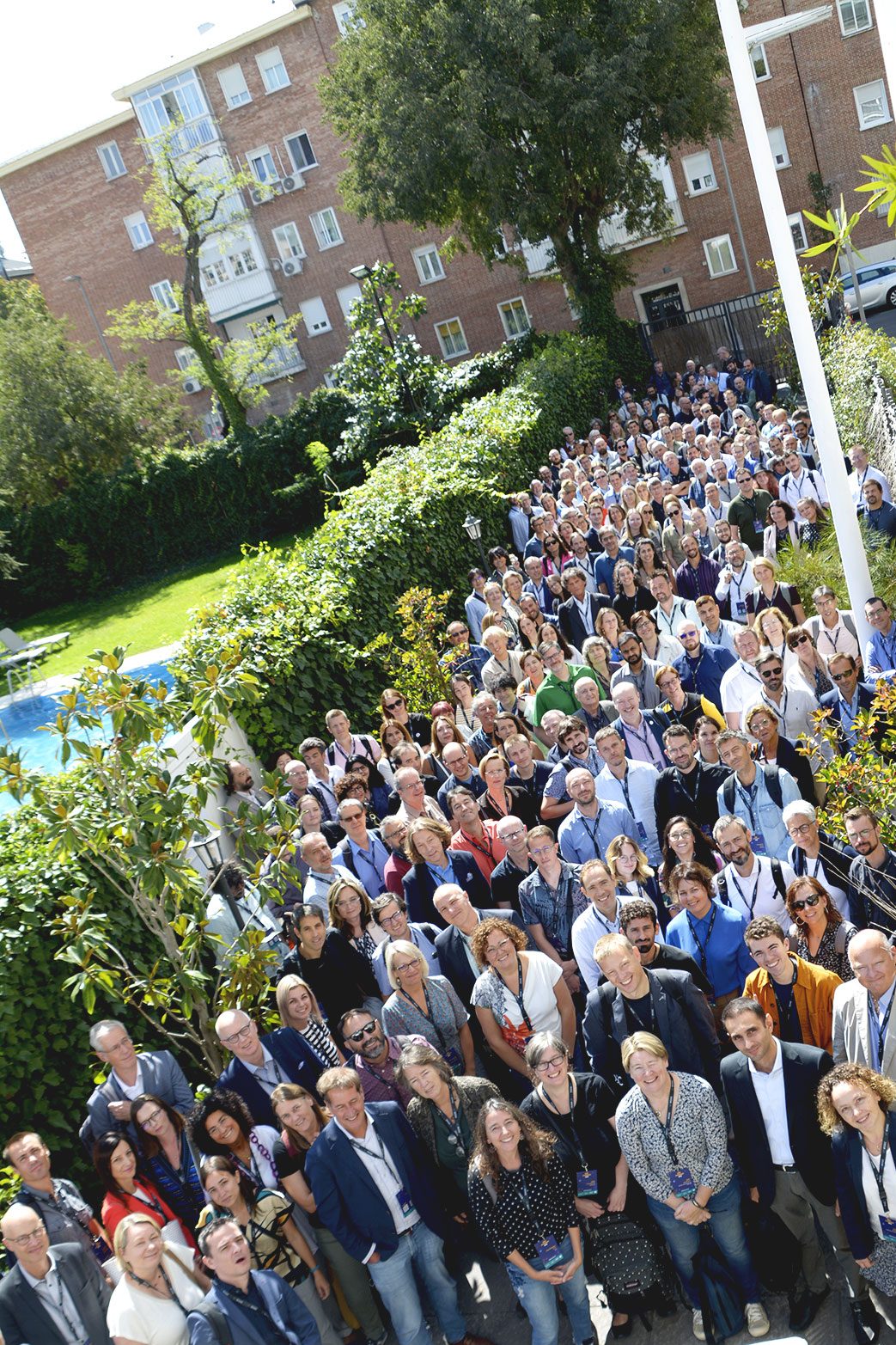
Takeaways from Members and projects:
RDA Europe: The Silk Road To EOSC: Reflections From The RDA EU Team
GRASP-OS: Roundup from the EOSC Symposium 2023
GÉANT: EOSC Nodes position paper
EOSC Support Office Austria: The EOSC Symposium 2023 in Madrid: A recap
EOSC Symposium 2024: Save the Date!
21-23 October, Berlin
Next year, EOSC Future will pass on the organisation of the annual community event to the EOSC Focus project. The EOSC Symposium 2024 will take place 21-23 October in Berlin. The event is being organised in coordination with German Mandated Organisation NFDI, and under the patronage of the German Minister for Education and Research Bettina Stark-Watzinger. Stay tuned for more details.



